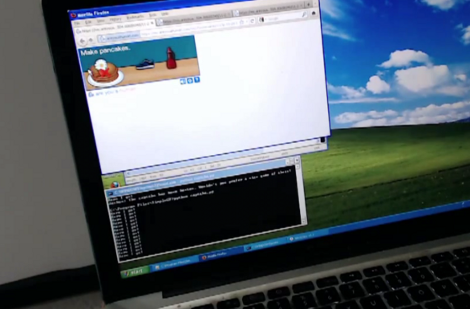Facebook and Yandex have been caught performing user-hostile tracking. This sort of makes today just another Friday, but this is a bit special. This time, it’s Local Mess. OK, it’s an attack with a dorky name, but very clever. The short explanation is that web sites can open connections to localhost. And on Android, apps can be listening to those ports, allowing web pages to talk to apps.
That may not sound too terrible, but there’s a couple things to be aware of. First, Android (and iOS) apps are sandboxed — intentionally making it difficult for one app to talk to another, except in ways approved by the OS maker. The browser is similarly sandboxed away from the apps. This is a security boundary, but it is especially an important security boundary when the user is in incognito mode.
The tracking Pixel is important to explain here. This is a snippet of code, that puts an invisible image on a website, and as a result allows the tracker to run JavaScript in your browser in the context of that site. Facebook is famous for this, but is not the only advertising service that tracks users in this way. If you’ve searched for an item on one site, and then suddenly been bombarded with ads for that item on other sites, you’ve been tracked by the pixel.
This is most useful when a user is logged in, but on a mobile device, the user is much more likely to be logged in on an app and not the browser. The constant pressure for more and better data led to a novel and completely unethical solution. On Android, applications with permission to access the Internet can listen on localhost (127.0.0.1) on unprivileged ports, those above 1024.
Facebook abused this quirk by opening a WebRTC connection to localhost, to one of the ports the Facebook app was listening on. This triggers an SDP connection to localhost, which starts by sending a STUN packet, a UDP tool for NAT traversal. Packed into that STUN packet is the contents of a Facebook Cookie, which the Facebook app happily forwards up to Facebook. The browser also sends that cookie to Facebook when loading the pixel, and boom Facebook knows what website you’re on. Even if you’re not logged in, or incognito mode is turned on.
Yandex has been doing something similar since 2017, though with a different, simpler mechanism. Rather than call localhost directly, Yandex just sets aside yandexmetrica.com for this purpose, with the domain pointing to 127.0.0.1. This was just used to open an HTTP connection to the native Yandex apps, which passed the data up to Yandex over HTTPS. Meta apps were first seen using this trick in September 2024, though it’s very possible it was in use earlier.
Both companies have ceased since this report was released. What’s interesting is that this is a flagrant violation of GDPR and CCPA, and will likely lead to record-setting fines, at least for Facebook.
Continue reading “This Week In Security: The Localhost Bypass, Reflections, And X” →
















